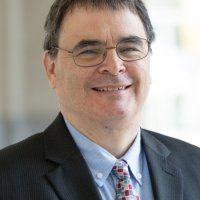Environmental Challenges in War-Torn Societies: Sustainability and Human Security in Post-Conflict Reconstruction
War-torn societies are highly vulnerable. Often in these societies, short-term needs take priority over long-term sustainability. Without basic infrastructure and services, many developing countries struggle with the transition from violent conflict to lasting peace. The toll of conflict on societies is both economic and human. Yet, natural resources are seldom mentioned as stimulating or stemming conflict, according to Erika Weinthal, professor at the Nicholas School of the Environment and Earth Sciences at Duke University, which hosted a distinguished panel of scholars and practitioners to discuss the role of the environment in post-conflict peace building and the reconstruction of war-torn societies.
Groups in conflict often share natural resources such as oil, forests, and minerals. According to Ken Conca of the University of Maryland, efforts to share resources may help build post-conflict societies and ease the transition from violent conflict to peaceful reconstruction, while failure to address shared resources can increase the likelihood of relapse into conflict. With the potential to engender peace or conflict, natural resources play an important part in society, and, therefore, should be an integral component of post-conflict reconstruction. Recurrence of conflict is a legitimate threat if the relationships among environment, economy, and society are not taken into account. A report from the Biodiversity Support Program, "The Trampled Grass," co-authored by panelist Judy Oglethorpe of the World Wildlife Fund, echoed Conca's sentiment: "Ultimately, if long-term rural livelihood needs cannot be met because the natural resource base is depleted and ecological systems are damaged, there is a high risk of instability and a return to armed conflict."
Alexander Carius, director of Adelphi Research, maintained that environmental peace building in post-conflict areas will not work unless there is a framework integrating natural resources into basic human and economic assessments. Since the power to manage environmental resources is diminished during and directly after conflict, an integrated framework will help satisfy both short-term needs and long-term sustainability practices. Cross-sectoral collaboration will help establish a broader set of stakeholders who can build a basis for common concern in post-conflict reconstruction, according Oglethorpe.
In post-conflict societies, practitioners, NGOs, and development agencies play a significant role in assessing the main challenges of reconstruction. Richard Matthew of the Center for Unconventional Security Affairs at UC Irvine noted that early influences on reconstruction efforts can make the difference between a lasting peace and the resumption of conflict: the window can open and close quickly, so first responders shape the trajectory of reconstruction. "Conditions can change quickly during conflict. During wartime, it is important to assess the situation continuously, to adapt to new circumstances, and always to watch for windows of opportunity for action as they open," said the authors of "The Trampled Grass."
This meeting was hosted by the Nicholas School of the Environment and Earth Sciences, and co-sponsored by the Nicholas Institute for Environmental Policy Solutions, the Woodrow Wilson Center's Environmental Change and Security Program, the Center for Unconventional Security Affairs at the University of California at Irvine, and the Harrison Program on the Future Global Agenda at the University of Maryland.
Drafted by Sean Peoples.
Speakers


Hosted By

Environmental Change and Security Program
The Environmental Change and Security Program (ECSP) explores the connections between environmental change, health, and population dynamics and their links to conflict, human insecurity, and foreign policy. Read more
